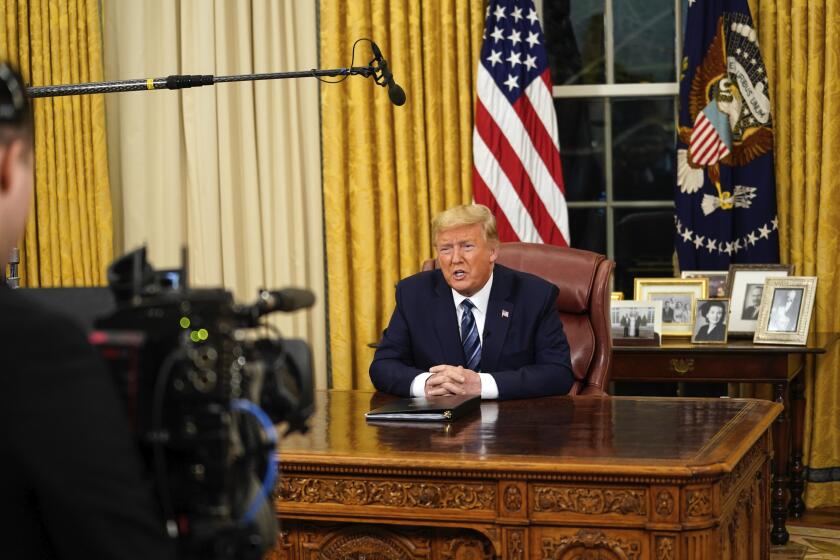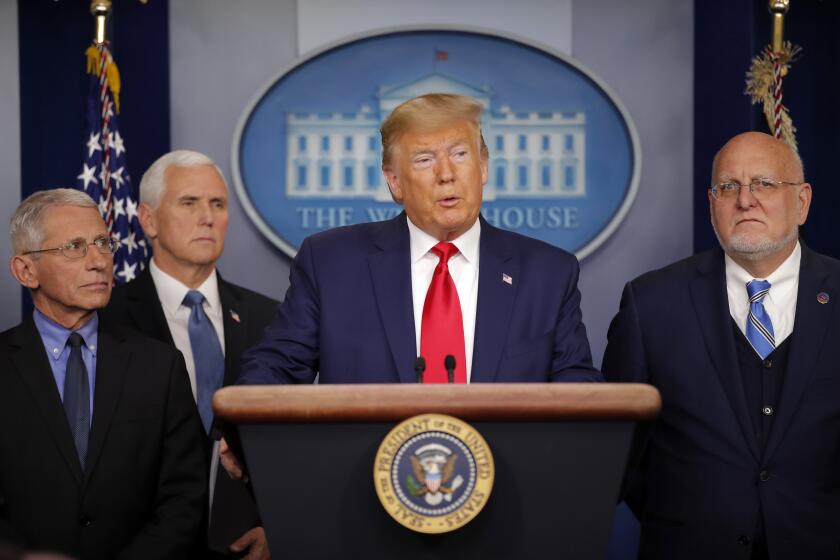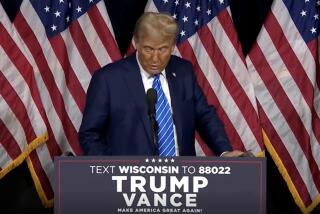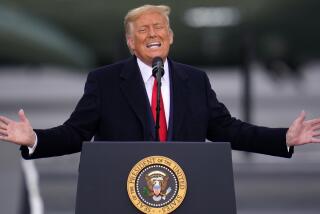Column: Trump’s absurd parade of CEOs conceals his inaction in the coronavirus crisis
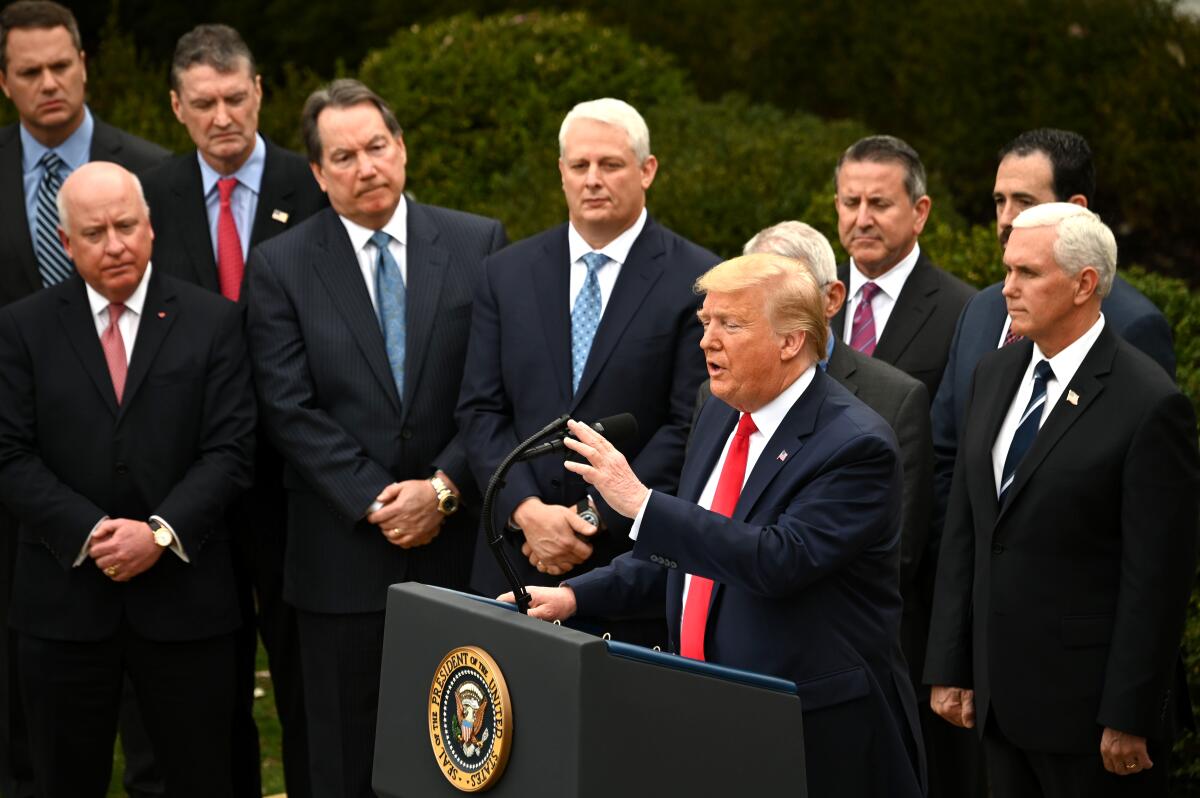
President Trump has long been a master of what economist John Kenneth Galbraith called the “no-business meeting.”
These were occasions, Galbraith reported, in which Herbert Hoover would bring together leading industrialists and executives for solemn sessions with the president, photo opportunities, and then a turn before the microphone to assert their eagerness to help the nation out of its crisis.
Those who tuned in to Friday’s spectacle in the White House Rose Garden would recognize the same procedure, this time with a host of healthcare company and big-retailer executives, including the leaders of the drugstore companies CVS and Walgreens, drug companies Becton-Dickinson and Roche, retailers Target and Walmart and medical testing firms LabCorp and Quest.
Mr. President, you have forged a seamless partnership with every state and every territory in this country.
— Vice President Mike Pence sweet-talks President Trump on his flawed response to the coronavirus crisis
For the most part, the executives trumpeted steps that they would have taken or already have taken in the course of business. But they accepted the opportunity to give Trump credit for goading them into action, even though if anything he and his administration have been a hindrance.
LabCorp and Quest, for instance, between them had developed the capacity to deliver 3,000 tests for the novel coronavirus per day, making them the top private test administrators in the country even before Trump summoned their CEOs to Washington.
CVS and Walgreens hardly needed a federal say-so to build up inventories of healthcare supplies for virus patients, or to administer vaccines when they become available. (They both already can inoculate customers against the flu, shingles and pneumonia at their stores.)
The steps Trump should take on the virus crisis are clear. Why isn’t he taking them?
Trump’s goal in staging this pageant was to communicate to the public at large, and perhaps Wall Street in particular, that he finally has got his arms around the crisis. To some extent, the stunt may have worked. The stock market, waffling within the green most of the day Friday, soared during the news conference, closing with a gain of almost 10% across the board.
Trump continued to claim Friday that he began acting well in advance of the emergence of the crisis.
But Friday’s event only underscored how ill-prepared his government has been, and still is, to manage a major public health emergency. The idea that the U.S. government has to place so much responsibility in the hands of private enterprise is a reproach to Trump’s way of governing, such as it is.
The gap between Trump’s actions and his claims were evident on myriad levels. Given his position, he should be leading by example on proper social hygiene.
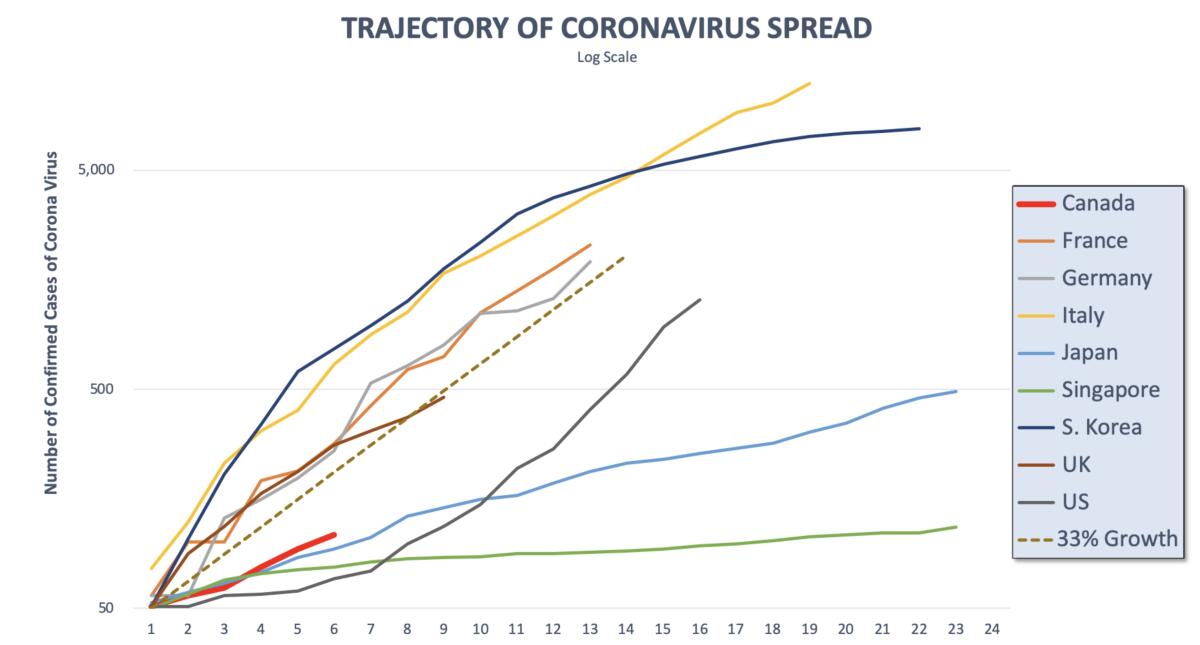
His own administration’s coronavirus.gov website, part of the Centers for Disease Control and Prevention, leads its advisories for keeping workplaces, commercial establishments and schools safe from the virus’s spread with the advice: “Stop handshaking – use other noncontact methods of greeting.”
Yet Trump stuck out his hand to every executive as they stepped from the microphones. Some took the bait, including Tom Moriarty, the representative from CVS Health. Others stepped away before having to grasp the proffered hand.
Only one that I could see responded by offering his elbow instead of his hand. (It was Bruce Greenstein, executive vice president at LHC group, a home healthcare firm.)
More important discordant notes were sounded. The sycophantic Vice President Mike Pence praised Trump as usual. “Mr. President, you have forged a seamless partnership with every state and every territory in this country” to fight the crisis, he said.
No assertion could be more absurd. Governors across the country have been pleading for days, even weeks, for Trump to declare a state of emergency to give them needed flexibility to deploy healthcare resources and unlock $40 billion in funding through the Federal Emergency Management Agency. He resisted doing so until Friday.
The coronavirus shows why Trump’s healthcare policies are dangerous for all
The truth is that governors nationwide have had to take matters into their own hands because Trump has been missing in action.
When individual governors voiced their displeasure at the federal dithering, Trump responded with bilious insults, calling Gov. Jay Inslee of Washington, one of the hardest-hit states, a “snake” for criticizing the delay.
Seema Verma, Trump’s ideology-addled head of Medicare and Medicaid, thanked Trump for the emergency declaration, which she said would allow her to “suspend regulations that could get in the way of treating patients.”
Actually, as my colleague Noam Levey reported Friday, Verma has been an obstacle to exploiting the vast capabilities of Medicaid, the nation’s largest public health program. Verma’s agency hasn’t “taken the necessary steps to give states simple pathways to fully leverage the mammoth safety net program to prevent a wider epidemic,” Levey reported.
Verma’s well-documented hostility to Medicaid makes it harder for states to quickly sign up low-income patients for coverage so they can get necessary testing or treatment if they are exposed to coronavirus. Without that help, many poor patients will shun testing, complicating the government response to the crisis. Instead, Verma has spearheaded efforts to reduce Medicaid enrollments nationwide.
The boasting about America’s fight against the novel coronavirus is contradicted by every statistic generated by professionals. The trajectory of confirmed cases of COVID-19, the disease caused by the virus, is as fast or faster in the U.S. than what’s been experienced by the hotspot of Italy or France, Germany and Canada, according to statistics compiled by Johns Hopkins University — and its rate of spread in this country is surely understated vastly, due to the unacceptable shortage of test kits in the U.S.
The fact that Pence is still talking about having “hundreds of thousands of tests available and being processed with results to patients in the very near future” is an outright admission of failure, since a functioning government public health system would have had millions of tests available weeks ago.
The very notion that Trump is boasting about mobilizing America’s public and private resources should terrify every American. He hasn’t been on the job, and he’s still not showing that he knows what the job is.
Throughout his term, Trump has held “no-business” meetings to give his White House the veneer of activity. He’s held them with auto executives, pharmaceutical executives, and many others. They play their part by showing up on command, praising his wisdom and foresight, getting their pictures taken and expressing confidence in the future into the microphones.
Then they leave Washington and do what they please — have any of his meetings with drug companies yielded lower prices? Will Friday’s event have the same outcome? One hopes not, but that’s the way to bet.
More to Read
Inside the business of entertainment
The Wide Shot brings you news, analysis and insights on everything from streaming wars to production — and what it all means for the future.
You may occasionally receive promotional content from the Los Angeles Times.
